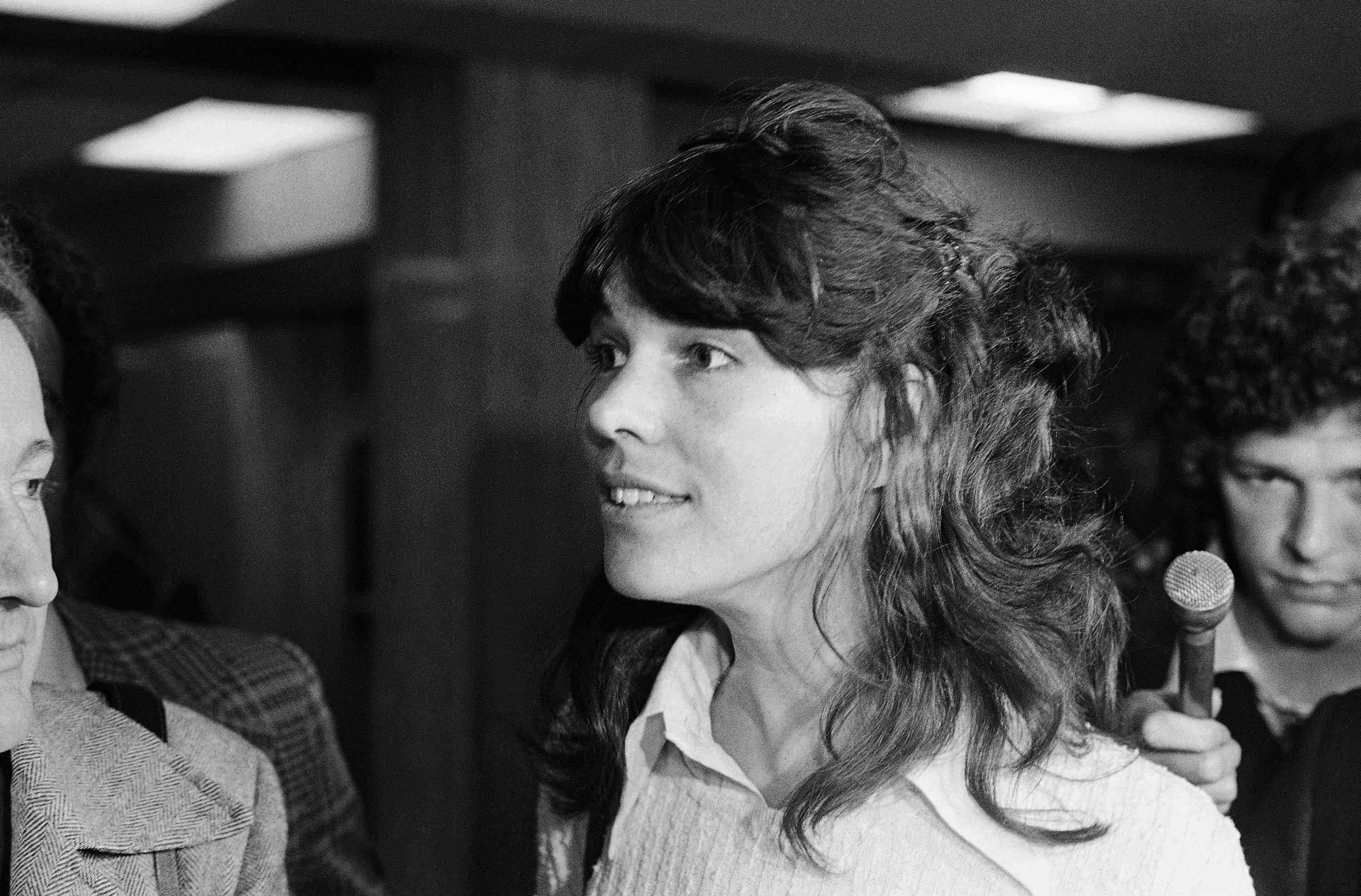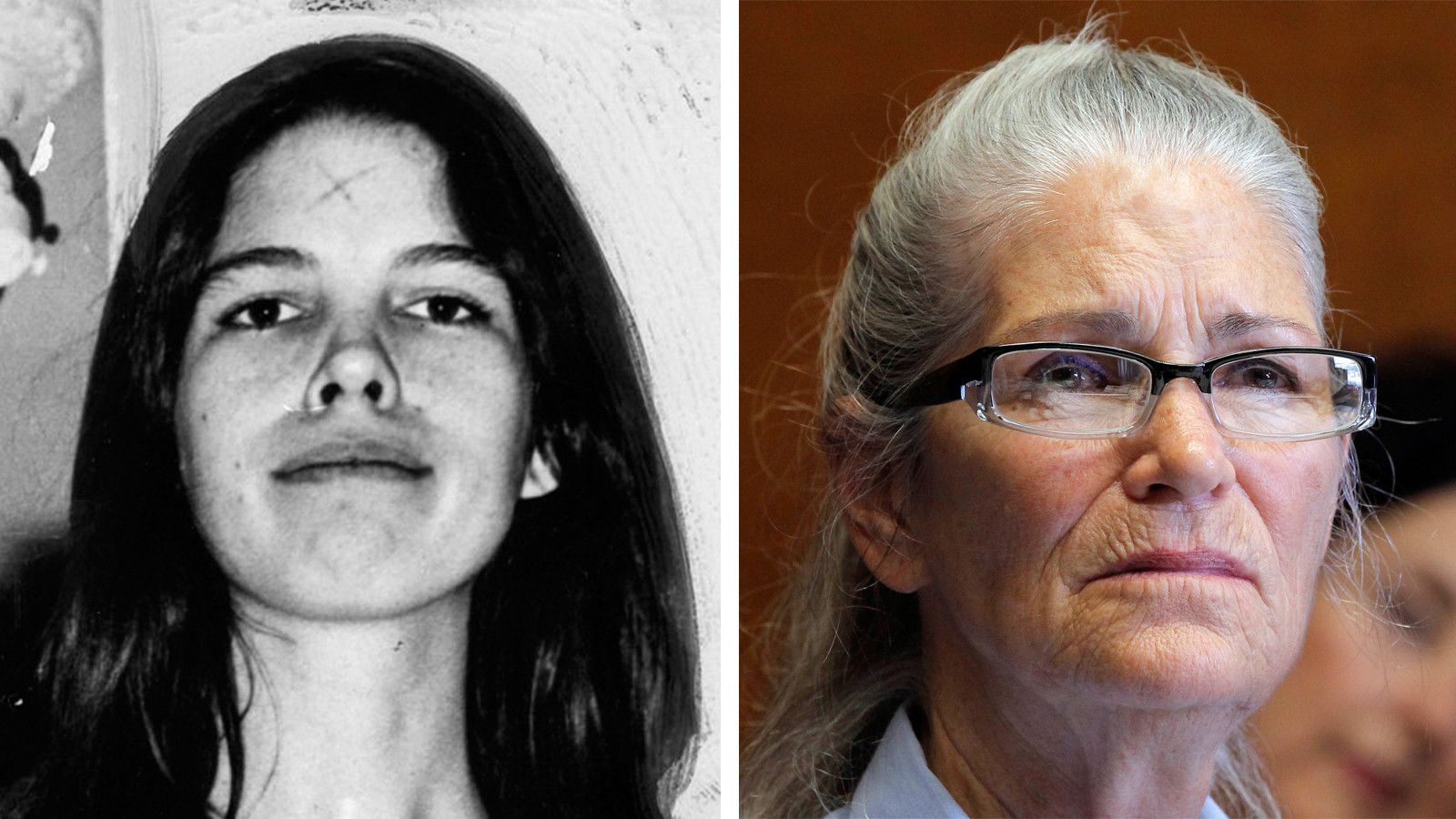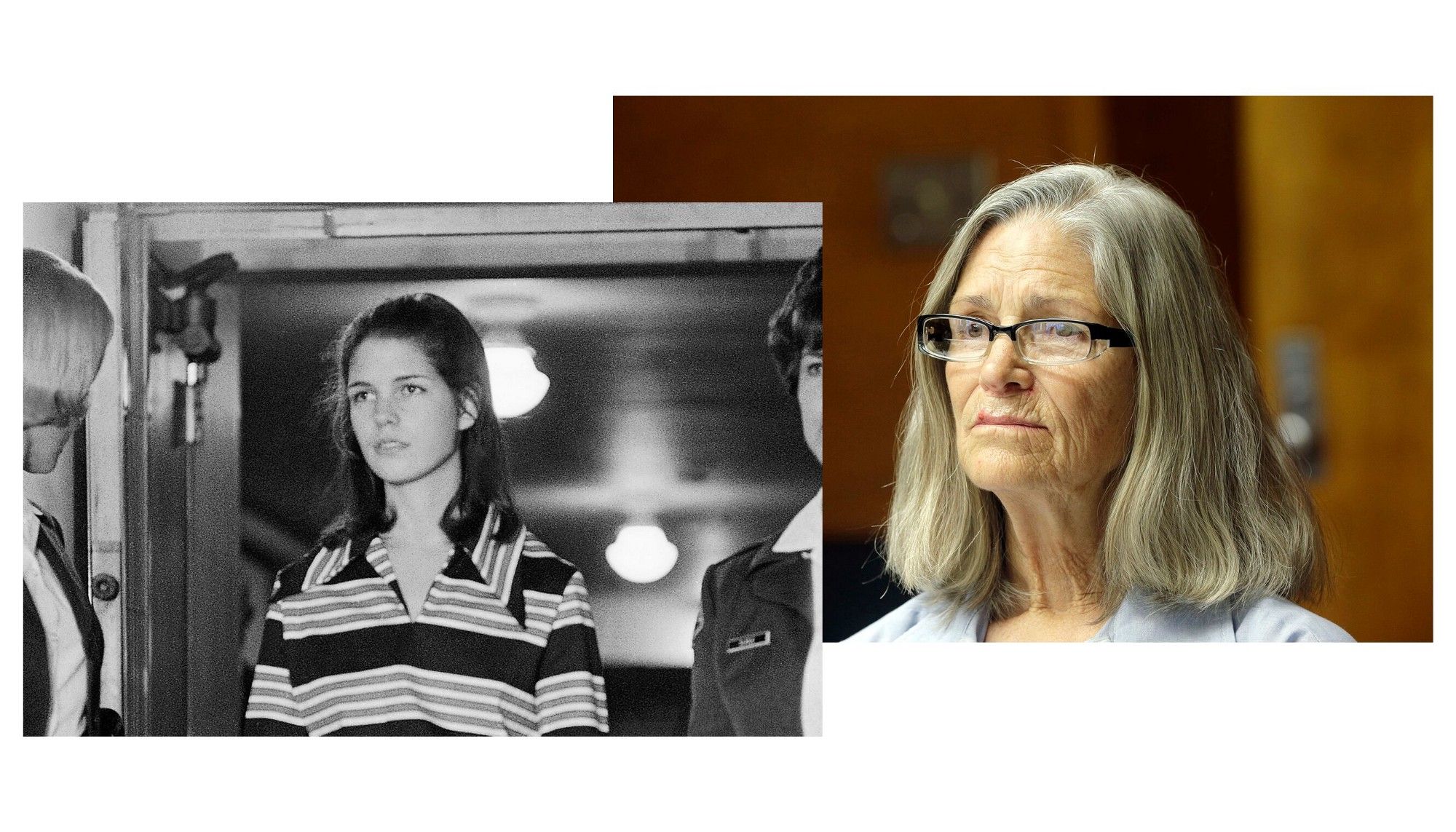Leslie Van Houten - A Life Unraveled
The story of Leslie Van Houten is, you know, one that really sticks with people, sparking so many conversations about justice, forgiveness, and the very idea of change. It's a name, you see, that for many years has been connected with a truly unsettling chapter in American history. People have wondered, for a long time, about the path she walked and the person she became after events that shook a nation to its core.
Her story, in a way, makes us think about how someone can get caught up in something so terrible and then, perhaps, find a different way forward. It brings up questions about accountability and what it means to truly move past a dark past. This is a person whose life, for quite some time, has been watched and discussed, raising all sorts of points about our legal systems and what we believe about human potential for transformation.
We'll take a look at the different parts of her journey, from her early days to the events that changed everything, and then to her many years spent in a correctional facility. It's a narrative that, for many, remains a source of considerable thought, prompting us to consider the various facets of a life lived under intense public scrutiny and the long shadows of past deeds.
Table of Contents
- A Glimpse Into Her Early Days
- How Did She Get Pulled Into That Group?
- The Horrific Events Unfold
- What Happened During the Trial for Leslie Van Houten?
- Life Behind Bars
- Is Leslie Van Houten a Changed Person?
- The Parole Hearings and Public Reaction
- What Does Her Release Mean for Society?
A Glimpse Into Her Early Days
Leslie Van Houten came into the world, you know, like many young people growing up in a time of big shifts and changes. She was, in a way, a girl who had a pretty typical upbringing, at least on the surface. Her family life, for the most part, seemed to follow a regular pattern, with parents and siblings. She attended school, just like countless others, and by all accounts, she was a bright student, someone with a good mind for her studies. She was, to be honest, a person who had some promise, or so it seemed to those around her.
Yet, as she moved through her teenage years, the world around her was, well, really starting to feel different. The late 1960s were a period of a lot of social upset, with young people questioning established ways of doing things and looking for new paths. It was a time when many young folks, for various reasons, were exploring alternative lifestyles and seeking out communities that felt more aligned with their own ideas. This kind of searching, as a matter of fact, sometimes led people down unexpected roads, and for Leslie, it meant a significant shift away from the life she had always known.
It was during this period of seeking and change that she, like so many others, became acquainted with a particular group, a collective of individuals who lived outside the usual societal norms. This connection, in some respects, marked a pivotal point, a turning away from her past and a movement into a very different kind of existence. Her given name, Leslie, has a background rooted in Scottish and Gaelic tradition, meaning something like "holly garden" or perhaps "gray castle." It's a name that, you know, has been around for a long time, often seen as a girl's name, and it's quite popular, appearing on lists of common names. But for Leslie Van Houten, the name itself would become tied to events that were anything but typical or serene.
Personal Details and Bio Data of Leslie Van Houten
| Full Name | Leslie Louise Van Houten |
| Date of Birth | August 23, 1949 |
| Place of Birth | Altadena, California, U.S. |
| Nationality | American |
| Parents | Paul Van Houten (Father), Jane Van Houten (Mother) |
| Occupation | Former Manson Family Member |
| Conviction | Murder |
| Sentence | Life Imprisonment (commuted, paroled) |
How Did She Get Pulled Into That Group?
Many people, you know, often wonder what draws a young person, especially someone from a relatively stable background, into a group that would eventually be linked to such awful acts. For Leslie Van Houten, the path was, in a way, a gradual one, a slow drift rather than a sudden leap. She was, apparently, a bit lost, searching for a sense of belonging and a deeper meaning in her life, something many young people feel at that age. The counterculture movement of the time offered, well, a kind of promise of freedom and community, and that was something that, for her, seemed pretty appealing.
She had, as a matter of fact, already started to move away from her family's expectations, experimenting with different ways of living and thinking. When she encountered Charles Manson and his followers, they offered something that, to her at the time, felt like a ready-made family, a place where she could feel accepted without judgment. There was, in some respects, a very strong pull from the group's charismatic leader, someone who seemed to offer answers and a sense of purpose to those who felt adrift. This kind of influence, you know, can be incredibly powerful, especially when someone is looking for direction.
The group's way of life, with its communal living and shared ideals, was, for Leslie, a complete change from her past. They lived outside the usual rules, and this freedom, initially, might have seemed liberating. However, as time went on, the influence of the leader grew stronger, and the group's ideas became more extreme. It was a situation where, pretty much, individual thinking started to fade, replaced by the collective will of the group, guided by one person's vision. This process, as I was saying, can be subtle, almost imperceptible, until a person finds themselves in a place they never imagined.
The Horrific Events Unfold
The events that Leslie Van Houten became involved in were, to be honest, truly disturbing and left a lasting scar on the public consciousness. These were acts that, for many, represented a complete breakdown of societal norms and a plunge into extreme violence. She was, as a matter of fact, a participant in the brutal killings of Rosemary and Leno LaBianca, which happened in August of 1969. This was part of a series of crimes committed by members of the Manson Family, acts that shocked the entire nation and continue to be a subject of considerable discussion.
On that night, she, along with other members of the group, went into the LaBianca home. Her role, as later revealed, included holding Rosemary LaBianca down while others attacked her. She also, eventually, used a knife on the already deceased woman, an act that she would later express deep remorse for. The details of these crimes are, well, very grim and paint a picture of senseless brutality. It was a situation where the victims were chosen at random, simply to create chaos and fear, to spark a race war that the group's leader believed was coming.
These actions, you know, weren't just isolated incidents; they were part of a larger, terrifying plan, an effort to create widespread panic and to fulfill a twisted prophecy. The violence was, in a way, meant to send a message, though what that message truly was, apart from pure terror, remains a chilling thought. The involvement of young people, especially women like Leslie Van Houten, in such depraved acts was, for many, particularly hard to come to terms with, prompting deep questions about how such things could happen.
What Happened During the Trial for Leslie Van Houten?
The legal proceedings for Leslie Van Houten were, to be honest, long and very complex, unfolding in a courtroom that saw a lot of dramatic moments. She was, you know, charged with murder and conspiracy to commit murder for her part in the LaBianca killings. The trial itself was a huge media spectacle, drawing attention from all over the world. People were, apparently, desperate to understand how these crimes could have occurred and who was responsible.
During her initial trial, she was, in a way, very much under the influence of Charles Manson, even attempting to carve an "X" into her forehead, just like him and other followers. This act, you know, showed how deeply she was still connected to the group's beliefs and their leader's control. Her defense, as a matter of fact, focused on the idea that she was brainwashed, that she wasn't truly acting of her own free will but was manipulated by Manson's powerful hold over her. It was a very difficult argument to make, given the severity of the crimes.
She was, you see, eventually convicted and sentenced to death, though that sentence was later changed to life imprisonment when California's death penalty was temporarily overturned. There were, in some respects, multiple trials and appeals over the years, as legal issues arose, including questions about her legal representation and her mental state at the time of the crimes. Each time, the focus was on her level of responsibility and the extent to which she could be held accountable for her actions, given the extraordinary circumstances of her involvement with the group.
Life Behind Bars
Spending decades in a correctional facility is, you know, a reality that few people can truly grasp, and for Leslie Van Houten, it became her entire adult life for a very long time. After her convictions, she was sent to a women's prison, where she would remain for more than 50 years. Her time there was, in a way, marked by a commitment to various programs and efforts to better herself. She was, apparently, a model inmate, someone who followed the rules and participated in activities aimed at personal growth.
During her incarceration, she earned both a bachelor's and a master's degree, which, to be honest, showed a dedication to education and learning. She also, as a matter of fact, became involved in various self-help groups and counseling sessions, working on understanding the psychological factors that led to her involvement in the crimes. These efforts were, in some respects, aimed at demonstrating her remorse and her transformation, a key part of her argument for eventual release. She worked in the prison garment factory, and she helped other inmates, too it's almost as if she was trying to make amends in the only way she could.
Her behavior in prison was, by all accounts, exemplary, with no major disciplinary issues. She maintained a low profile, generally speaking, and focused on her rehabilitation. For many, this long period of good conduct and self-improvement raised questions about what constitutes true punishment and when, if ever, a person has served enough time for their past deeds. It was, in a way, a quiet life within the confines of the prison walls, a stark contrast to the chaotic and violent period that defined her early years with the Manson Family.
Is Leslie Van Houten a Changed Person?
The question of whether Leslie Van Houten is a truly changed person has been, you know, at the heart of every parole hearing she's had over the years. It's a very difficult question, as a matter of fact, for anyone to answer definitively, especially when dealing with such serious past actions. She has, apparently, consistently expressed deep regret and remorse for her involvement in the LaBianca murders, stating that she understands the profound pain she caused to the victims' families.
Her claims of transformation are, in some respects, supported by her long record of good behavior in prison and her participation in various rehabilitation programs. She has, you see, engaged in extensive therapy, trying to come to terms with the psychological processes that led her to follow Charles Manson. She has spoken openly about the manipulation she experienced and how she gradually lost her ability to think independently. This kind of self-reflection, for many, is a sign of genuine change, a person truly looking at their past mistakes.
However, for others, particularly the families of the victims, the idea of her being "changed" is, well, very hard to accept. They argue that the severity of her crimes means that she should never be released, regardless of how much she has seemingly improved. The debate around her transformation highlights a bigger societal question about forgiveness, redemption, and the limits of rehabilitation for those who have committed truly heinous acts. It's a conversation that, pretty much, has no easy answers, and people hold very strong feelings on both sides.
The Parole Hearings and Public Reaction
The parole hearings for Leslie Van Houten became, you know, a regular fixture in the news, drawing significant attention each time. For decades, she appeared before parole boards, seeking release, and each time, the proceedings would reignite public debate and bring up old wounds. The process was, in a way, a very thorough examination of her past, her present conduct, and her potential for future behavior outside of prison. She would, as a matter of fact, present evidence of her rehabilitation, and the district attorney's office, along with victim advocates, would often argue against her release.
These hearings were, in some respects, a very public forum where the pain of the victims' families was clearly expressed. They would, you see, often speak about the lasting impact of the crimes, emphasizing that no amount of time served or apparent change could erase the horror of what happened. Their powerful testimonies served as a stark reminder of the human cost of the Manson Family's actions, and they often swayed public opinion against her release. It was, to be honest, a very emotional experience for everyone involved, and the tension in the room was almost palpable.
Despite numerous recommendations for parole by the board, governors repeatedly reversed those decisions, citing the extreme nature of the crimes and the continued public safety risk. This back-and-forth process, you know, highlighted the complex interplay between legal processes, public sentiment, and political considerations. Each reversal meant more years in prison for Leslie Van Houten, and each time, the hope for freedom was, well, really pushed further away. It was a long and arduous process, showing just how difficult it is to move past such a dark history.
What Does Her Release Mean for Society?
When Leslie Van Houten was finally released, it was, you know, a moment that sparked a lot of discussion and, frankly, a lot of strong feelings across society. Her release, after more than five decades, brought up big questions about what justice means and how we view rehabilitation for people who have committed truly terrible acts. For some, it represented a belief in the idea that people can, in fact, change, and that after serving a very long sentence and showing genuine remorse, there should be a path to freedom. They might see it as a testament to the system's ability to offer a second chance, even in the most extreme cases.
On the other hand, for many others, especially the families of those who were killed, her release was, well, very upsetting. They might feel that no amount of time could ever truly make up for the lives lost, and that the risk, however small, of someone like her being back in society is just too much to bear. This perspective, as a matter of fact, often centers on the idea of permanent accountability for horrific deeds, regardless of how much a person seems to have transformed. It highlights the deep and lasting trauma that such crimes inflict, and how that pain can persist for generations.
Her return to the outside world, in some respects, forces us to look at our own beliefs about crime and punishment. It makes us consider the balance between a desire for retribution and the potential for human redemption. It's a situation that, pretty much, doesn't have a simple answer, and people will continue to hold different views on whether her release was the right decision. It also, you know, brings up a lot of thoughts about the Manson Family's lasting impact on American culture and how we grapple with the shadows of such a dark period in history.
The story of Leslie Van Houten, then, is a really complex one, showing us the many layers of human behavior, the long reach of past events, and the ongoing conversations we have about justice and change. It's a narrative that, in a way, continues to make people think deeply about what it means to live with the consequences of one's actions and the possibilities, or limits, of personal transformation.

Pictures of Leslie Van Houten

Pictures of Leslie Van Houten

Pictures of Leslie Van Houten